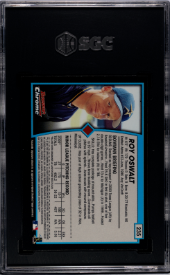Whenever someone says "Baseball is boring," what I think they mean is "Baseball games are too damn long." Moneyball showed how a few small decisions can dramatically impact a team's fortunes, so games slowed to a crawl as teams optimized every chance they had. MLB implemented rule changes in 2023, and games started to speed up. I thought it would be fun to track this for the Astros from 1995 until today.
The first three plots are different ways to visualize game length over time:
- The median game length (in minutes) for each season since 1995
- The year-over-year change in median game length (in minutes) to make it easier to understand the changes
- The fraction of games each season that last a given amount of minutes (in 20 minute buckets)
Times have bounced around a bit through the years, but the trend in the 2010s was longer and longer games. You can see a dramatic decrease in times once the new rule changes went into effect in 2023.

Roy Oswalt was a phenomenal starting pitcher for the Astros from 2001 to 2010. My dad looked forward to days when Roy started because he thought Roy worked quickly. This makes me wonder: how do games Roy Oswalt started compare to other Astros' pitchers?
It turns out that my dad's intuition was correct: Astros games started by Roy Oswalt are relatively quick! Compared to other Astros starting pitchers with at least 30 starts since 1995, only two pitchers work faster:
- Hunter Brown, a starter whose first full season was 2023 when the rules changed.
- Ronel Blanco, a starter whose first full season was 2024.
In the end, baseball games are still pretty long though, and there are 162 of them a year. Am I using my time wisely by watching them?